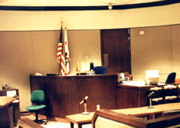An agreement by Tyco International Ltd. to settle shareholder lawsuits in a massive corporate fraud case puts the industrial conglomerate on firmer ground as it prepares to split into three companies. Tyco said Tuesday it had agreed to set up a $2.975 billion cash fund to pay claims filed by shareholders against the company arising from actions by ex-chief executive L. Dennis Kozlowski and other top officers convicted of looting Tyco and inflating its value. The company said it would take a charge of that amount during the current quarter. Tyco spokesman Paul Fitzhenry said the company also would pay interest on the $2.975 billion and turn over half of any money it recovers from ongoing lawsuits against Kozlowski, former Chief Operating Officer Mark Swartz and former board member Frank Walsh. "With this settlement, we are taking an important step to resolve our most significant remaining legacy legal matter," Chairman and Chief Executive Ed Breen said in a statement. "Our balance sheet and cash flow remain strong and will allow us to readily absorb these costs while removing much of the uncertainty around legacy legal matters." Investors, including union and state pension funds and Tyco retirees, were permitted last summer to proceed with a consolidated class-action lawsuit in the U.S. District Court in New Hampshire, where Tyco was formerly headquartered. The settlement still must be approved by the largest shareholders and the court. The settlement covers shareholders from December 1999 to June 2002 and, in some of the consolidated cases, investors who owned stock starting in October 1998, the company said. Tyco's share price rose 19 cents to $32.38 Tuesday. Tyco is breaking up into three publicly traded companies: Tyco Healthcare, which will be renamed Covidien and based in Mansfield, Mass.; Tyco Electronics, to be based in Berwyn, Pa., near Philadelphia; and Tyco International, which will remain in New Jersey and include the fire and security and engineered products units. The breakup has been delayed twice, but is now slated for the end of June. Each company will assume a portion of the settlement debt. Lawyers for the shareholders said the settlement would top $3 billion with interest, making it the largest payout ever by a single corporate defendant in a securities fraud lawsuit. "This is a fantastic resolution and closes a chapter on one of the largest and most appalling examples of corporate fraud in U.S. history," said Jay Eisenhofer, managing partner at Grant & Eisenhofer. Total settlements involving securities fraud lawsuits against Enron Corp. ($7.1 billion) and WorldCom Inc. ($6.1 billion) were larger, but those companies are now bankrupt and the payments were made primarily by outside co-defendants including investment banks and auditors. Cendant Corp. agreed to settle a shareholder lawsuit for $2.83 billion in December 1999. "This is a settlement of historic proportions for the investors who suffered significant financial losses and it also sends a strong message to those who would engage in this type of misconduct in the future," said Richard Schiffrin, of Schiffrin, Barroway, Topaz & Kessler. Shareholder claims against the company's former auditor, PricewaterhouseCoopers LLP, are still pending, so the total amount recovered by shareholders could be larger, Eisenhofer said. Tyco also has agreed to assign its claims against PricewaterhouseCoopers to the shareholders, who will pursue them "vigorously" alongside the shareholders' existing claims, Eisenhofer said. "The fraud couldn't have taken place without them. They totally abdicated their responsibility as independent auditor, and had they performed as they should have, this fraud wouldn't have taken place," he said. PricewaterhouseCoopers spokesman David Nestor declined to comment. The portion of the settlement that will go toward attorneys' fees has not been determined yet because that portion of the lawsuit is still pending, Eisenhofer said. Kozlowski and Swartz were convicted in a New York State court in 2005 of multiple counts of grand larceny, conspiracy, securities fraud and falsifying business records. Prosecutors said the two conspired to defraud Tyco of $600 million to fund their extravagant lifestyles. They were sentenced in September 2006 to eight to 25 years in prison. A judge refused to release them on bail while they appeal. The shareholders' lawsuits alleged the company misrepresented the value of Tyco and companies it acquired under Kozlowski's leadership in a giant accounting fraud scheme, causing losses estimated at $1 billion to $2 billion. Tyco makes everything from telecommunications equipment to home alarm systems. The company, which is registered in Bermuda, was run from Exeter at the time of the alleged fraud. It now operates from West Windsor, N.J.
|







